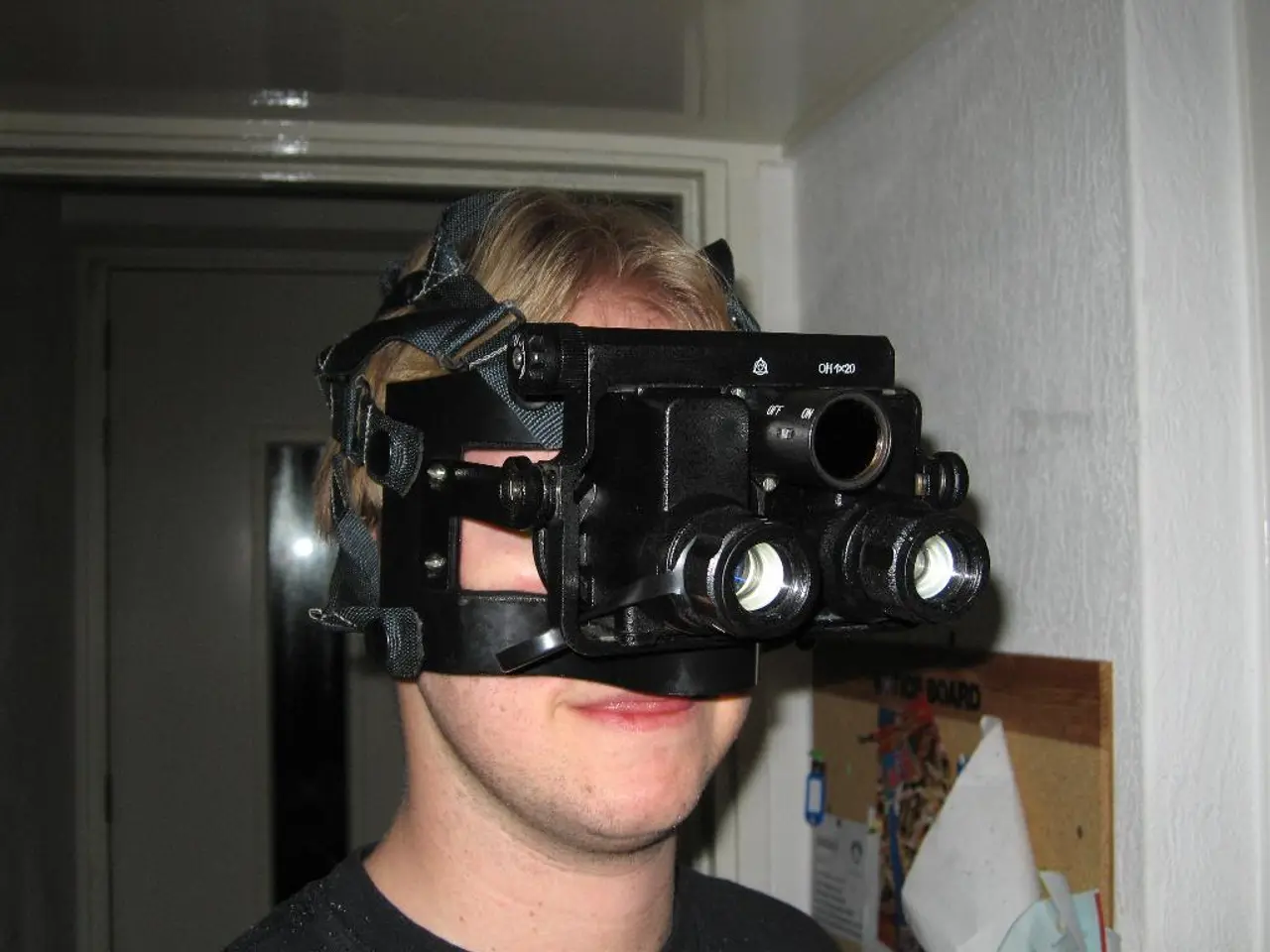Virtual Reality Workplace Training: Worthwhile Investment for Your Business?
In today's fast-paced world, the need for efficient and effective training solutions is paramount. One technology that is making waves in this sphere is Virtual Reality (VR). This innovative technology is transforming the way businesses approach employee training, offering a host of benefits that traditional methods simply cannot match.
VR manufacturing training, for instance, has been shown to significantly improve employee collaboration skills and reduce risks associated with complex equipment. By immersing employees in realistic simulations with interactive 3D models, they can learn to overcome challenges and emergencies, and master essential skills in a safe, controlled environment.
For businesses looking to develop a custom VR training solution, outsourcing or hiring dedicated specialists from VR development companies can be a profitable option. Top VR development services for creating custom workplace training solutions include Program-Ace, ELB Learning, Intellias, and WeSoftYou.
Program-Ace specializes in building immersive VR training solutions grounded in real operations using advanced 3D CAD models. They focus on creating scalable, simulation-based environments that mirror exact tools, procedures, and safety protocols, especially for industries requiring precision and risk minimization.
ELB Learning offers custom immersive learning solutions including VR, gamification, and video coaching. Their flagship product, CenarioVR, is an easy-to-use VR authoring tool supporting multiple platforms, enabling the development of engaging and effective training experiences.
Intellias, an international technology company, creates AI-based adaptive platforms and realistic VR/AR training environments. Known for data-driven personalized learning experiences, Intellias has worked with high-profile clients and integrates machine learning and big data analytics into their corporate training software.
While details about WeSoftYou are limited, they focus on AI-driven tutoring and adaptive e-learning architectures, presumably integrating VR aspects to enhance digital education experiences.
Effective VR training services typically combine AI integration for personalized feedback and adaptive learning paths, realistic simulations with interactive 3D models, and scalable and standardized training modules to ensure consistent quality across the workforce.
When selecting the best service, it's crucial to consider your industry needs, the level of CAD or AI integration required, and the desired training customization and scalability. Program-Ace and Intellias stand out for their precise and AI-enhanced solutions, while ELB Learning is noted for ease of use and immersive content variety.
However, unawareness of modern technologies can be a challenge for older employees. Development of a VR training solution requires qualified specialists and can take time. Nevertheless, the benefits are undeniable. Employee safety can be enhanced through VR training, as they can practice potentially dangerous scenarios without real-world risks.
VR training offers opportunities and benefits to entrepreneurs as well as employees. In various industries, such as aircraft, automotive, construction, and emergency services, VR training is proving to be a game-changer. It can reduce onboarding time for new employees and trainees, increase employee performance, and provide ready-made environments with various scenarios for emergency service specialists to train in.
In the automotive industry, VR training is used to train employees to operate in their workplaces, avoiding accidents, and to train sales managers to improve customer experience and make more profitable deals. For police officers, VR training allows them to train to deal with criminals under different circumstances, including complex cases with hostages involved.
In the medical field, VR medical training allows users to experience complex scenarios in a virtual environment for precise action in real-life cases. Interns can explore human anatomy more deeply than with actual bodies, thanks to detailed 3D modeling and interactive features.
VR training can save time and costs on training compared to traditional methods, and can be scalable, allowing developers to add necessary features as needed. Customizable VR training solutions can be developed for hazard identification, warehouse safety, and lockout tagout procedures.
However, possible motion sickness can be a challenge for some employees during long-term VR training. VR headsets enable employees to go through specific scenarios relevant to their job positions, and immersive technologies and custom software allow employees to train proper workplace behavior in a virtual environment.
In conclusion, virtual reality employee training is an effective method for improving worker skills and knowledge. By providing realistic, immersive, and interactive training experiences, VR is revolutionizing the way businesses approach employee training, offering a host of benefits that traditional methods simply cannot match.
- In the fast-paced world, Virtual Reality (VR) technology is transforming the way businesses approach employee training, offering benefits that traditional methods cannot match.
- VR manufacturing training, for example, significantly improves employee collaboration skills and reduces risks associated with complex equipment by immersing them in realistic simulations with interactive 3D models.
- For businesses looking to develop a custom VR training solution, Program-Ace, ELB Learning, Intellias, and WeSoftYou are notable VR development companies offering specialized services.
- Program-Ace specializes in building immersive VR training solutions grounded in real operations using advanced 3D CAD models, focusing on creating scalable, simulation-based environments that mirror exact tools, procedures, and safety protocols.
- ELB Learning offers custom immersive learning solutions including VR, gamification, and video coaching, boasting an easy-to-use VR authoring tool supporting multiple platforms.
- Intellias creates AI-based adaptive platforms and realistic VR/AR training environments, known for data-driven personalized learning experiences and integrating machine learning and big data analytics into their corporate training software.
- VR training can save time and costs on training compared to traditional methods, offers opportunities in various industries like aircraft, automotive, construction, emergency services, and medical fields, and can be scalable, allowing for the addition of necessary features as needed.




